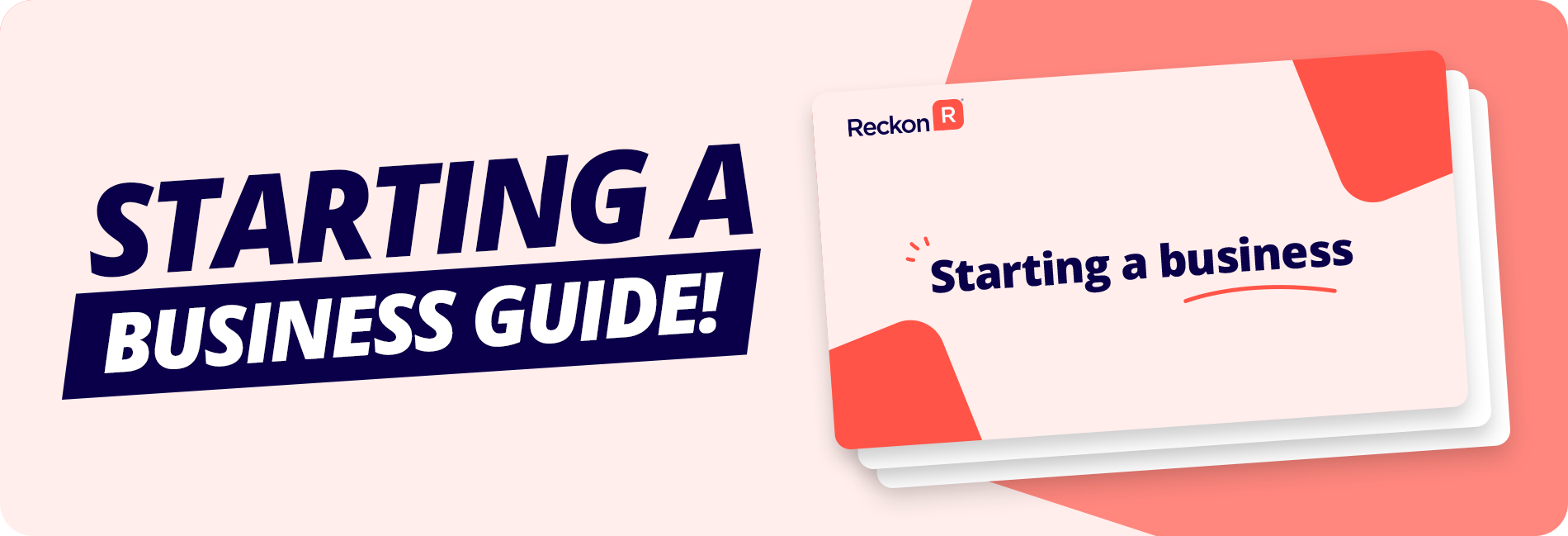SMALL BUSINESS GUIDES
Your guide to starting a small business in Australia
Everything you need to know about how to start up a small business in Australia
OpEx and your business
When you’re running a business, the numbers matter. But you shouldn’t just be concerned about what you earn, it’s also about what you spend. That’s where operating expenses, or operating costs, come in. These are the costs your business incurs day to day just to...
OpEx and your business
OpEx is the ongoing cost of running a small business. Read more for examples and what it means for your small businesses
How to start a retail store in Australia
Looking to start a new business venture in retail? Check out our guide on where to start, build and launch your own retail business.
How to start a plumbing business in Australia
Are you looking to start a plumbing business on your own? Our guide will help you discover what you need and where to get started.
Business Bank Account
A business bank account helps you manage your funds. Let’s compare the top five business bank accounts. Read here for more!
Guide to Starting an Online Business in Australia
An online business can be a great way to start out. Here’s what you need to know to set up online. Read more!
Business Proposal
A good business proposal is an important part of pitching your ideas when seeking out funding or partners. Read on to find out more!
How to register a business name
Registering a business name in Australia is a crucial step for every start up. Here’s what you need to know.
Business Registration
Business registration is a critical step when starting out. Read on to find out the key details to help start your small business.
Franchisee: Definition, Examples and Benefits
Becoming a franchisee can be a great way to start a small business with some extra security. Read on to find out more.
Business Model: Definition and Key Components
A business model lays out the foundation for your business. So how do you create a solid game plan? Read more.
CapEX vs OpEx
Capital and operating expenses are two key metrics for tracking the health and growth of small businesses. Let’s break down capex vs opex.
What is & how to calculate cost of goods sold (COGS)
What is the cost of goods sold? How do you calculate cost of goods sold? Simply, the cost of goods sold (COGS) is a core calculation in the buying and selling of goods by a small business, distributer, wholesaler, or manufacturer and we’ll show you how to...
Accounting terms
Firstly, let’s answer the question ‘what is accounting?’ and get on the same page. Accounting is the recording, analysing and summarising of financial information. It’s imperative in helping you understand the financial health of your business and planning your...
9 business ideas that actually work
If you're excited about starting your own business but not quite sure about which path to follow, you’ve come to the right place. We've put together our list of some of the most rewarding business ideas that actually work. Perfect for beginners, thanks to little...
7 step guide on how to start a business in Australia
I bet you didn’t know that last year over 250 000 people started their own business? Have you ever thought of joining these hundreds of thousands of Aussies? When you consider the reasons for people leaving their job to become their own boss, such as achieving a...
What is brand identity?
Your business brand identity is one of the main reasons customers buy from you: Who are you? Why should they buy from you? What are you all about? These questions are why you need to pay attention to brand identity and all the branding activity which accompanies...
Common and famous business mistakes
For those small business owners looking to avoid the harsh reality of failure, learning from common and famous business mistakes is an excellent remedy to your own possible missteps. Small business mistakes and ultimate failure is all too common and there’s a...
What is a business strategy?
You have a tantalising small business idea, a solid financial basis, and a lot of determination, but no business strategy. What is a business strategy and why does a good business idea need one, you ask? Finding success is momentous task unto itself but...
What is the role of a director in a small business company?
What is a director in a company exactly? What is their role? How does it differ to the role of a CEO or managing director? As a small business owner, what do you need to understand about the role of a director? What is a director of a company? The director of a...
6 small business tax help tips
If you’ve started or are starting a new business, there’s lots of decisions to be made that can have a huge impact on the day-to-day running of your business. Getting on top of the tax obligations and regulations that apply to your business can seem overwhelming....
How to get an ABN?
If you’re setting up a new business, you’ll need to know how to get an ABN in Australia – otherwise know as an Australian business number. Finding out how to get an ABN is one of the first steps you’ll take, and it’s not as daunting as it sounds. But what an ABN...
Download your free starting a business guide
Starting a business guide
Starting your own business is simultaneously one of the most rewarding and demanding things you can undertake. When you first start out in the business world, there’s a lot of assumed knowledge you’ll need to absorb quickly.
Starting a small business FAQs
What business can I start from home?
The Covid-19 Pandemic has opened up a whole new remote world. Trends coming out of 2020 mean it’s never been easier to run your business from home. Cloud applications and the decline of face to face, necessitating new ways of interacting and forming relationships.
Here’s some business that you can start from home:
- Blogging & copywriting
- Buy and sell on ebay or FB marketplace
- Ecommerce
- Freelancing
- Services based businesses e.g accounting, graphic design etc
- Virtual assistant
- Pet grooming/walking
- Dropshipping
How can I get small business mentoring or support?
Starting your own business can be scary at first but there is help available. The Australian Government has a host of grants, programs and support for small businesses and new business businesses. Check out the below for more information:
- The Government run New Business Assistance with NEIS mentoring and support program. Learn more >
- Grants & programs. Learn more >
- Expert advice. Learn more >
What are some overlooked business start up costs?
Starting a business can be an expensive exercise. Here are some start up costs that are often overlooked:
- Professionals & business registrations. Including domain name registration, accountant, bookkeeper or business advisor fees or licences and permits for your particular market.
- Technology. Including remote working equipment, software costs, computers, printers, scanners, modems and IT servicing,software for accounting, security, design, documents, internet and mobile packages
- Marketing. Including website, ecommerce, advertising, including social media ad spend, logo, imagery, signage, branding and design
How can I fund my new business?
There are many ways to raise money to support your business, it’s up to you to choose the most suitable and sustainable option for you and your business. Here are some common capital raising methods:
- Existing savings or current earnings if you are still working.
- Selling assets
- Family & friends
- Credit card
- Loan from the bank
- Short term business loans
- Government business grants
- Angel investors & venture capital
See our business financing hub for more information.
Discover other small business resources
Try Reckon One free for 30 days
Cancel anytime.















































